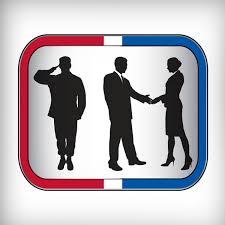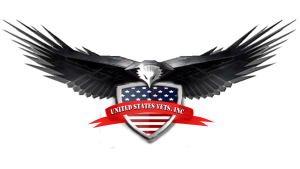Networking can be uncomfortable for anyone who is a stranger to the process. Stepping out of your comfort zone when trying to make a professional connection can be a challenge. And when you are a veteran, how can you highlight your skills and services and make them memorable? Networking shows initiative and sincere ambition and is an important skill for the veteran living the civilian world. It is the fine tuning of a conversation that does not overwhelm the listener with your military skills and credentials. It is a mix of communication, knowledge and etiquette. From job fairs to seminars, the ocean of networking, although rocky in the beginning, is an excellent showplace to highlight your military service.
It takes time to cultivate networking relationships and you always want them to remember that you served proudly and  humbly. You want people to recognize your strengths and what you “bring to the table” with professionalism. Since you are presenting yourself as a veteran, people want (and expect) to be impressed. A good elevator pitch in a networking or interviewing position can put you to the head of the pack and when you put “military” into the mixture, it announces confidence and leadership.
humbly. You want people to recognize your strengths and what you “bring to the table” with professionalism. Since you are presenting yourself as a veteran, people want (and expect) to be impressed. A good elevator pitch in a networking or interviewing position can put you to the head of the pack and when you put “military” into the mixture, it announces confidence and leadership.
Compiled are some steps to help you prepare for the challenge of compiling, translating and importing/exporting your information.
Step one
The translation can be a struggle. Describing what you accomplished and your responsibilities and successes can be a difficult task. You can try this method – the “who, what, where, when and how” method. Remember your audience – who you’re describing this to. These skills that you have acquired may be commonplace to you but not to your listener. Your skills need to be translated into a well composed, sophisticated oral text. Yes. Sophisticated – a degree of tact, pride and humble recognition bundled into a memorable script. They may or may not understand the lingo you’ve been living with and yet, you don’t want to appear condescending. Keep it simple. Put everything in a positive light, even the challenges. The person you are speaking with could be a vet as well, or the spouse of a vet.
Step two
QUICK! In 30 seconds, describe yourself. This is the quintessential “elevator pitch”, and if caught off guard, it’s a fumble. The goal is to be engaging enough to keep the conversation going. Know it inside and out and the confidence (and leadership) shows. You are describing who you are, what’s your mission and your vision. It’s all in the preparation to put the networking in gear.
Elevator pitch suicide? Rambling. This is the primary reason for practicing. It’s easy to get off on a tangent. You want to be remembered as “Wow! That guy was really interesting and he was a vet” not “this guy wouldn’t shut up”. The elevator pitch takes practice. It is awkward but not as awkward as recovering from fumbled words during an important conversation. Interweaving the elements of your service is vital. You’re a vet. Let it shine.
Step three
Networking is more than trading business cards, it’s time to show interest in the person you’re speaking with and engage with you. People like to talk about themselves just as much as you want them to listen to you. There’s nothing better than starting that rapport. The comfort level changes and the waters are easier to navigate. Whether you are at an employment fair, meeting a potential client or in a casual setting, your veteran status should never be overlooked. You can bleed with confidence but don’t hemorrhage with arrogance. Arrogance or humility? Which do you want to be remembered for? A medal may not be pinned on your chest but the pride will shine on your face.
Step four
Ask yourself this, what did I get from the conversation? What you’ve learned may or may not apply to your plans but someone took the time to engage with you and learn about you. Email them, thank them for their information and DO IT within 24-48 hours. Follow up is important in networking. Never pass an opportunity to make a connection. And if you talked about being a vet, you will stand out in their mind.
Step five
Always be sure to share what you’ve collected with a fellow vet. Positive information splinters fast. Before you know it, you’ll be networking like a pro. Stay organized, practice your elevator pitch over and over again in the mirror until it becomes second nature, and, relax. You can do this!
Networking is a learning experience. After an event, think about the experience, the connections you made and the questions that may have put you on the spot. But what if the inquiries become uncomfortable? If you are dealing with professionals, they probably won’t go down that road. But if it does happen (and there will always be somebody asking an inappropriate question) remember you are in control of the conversation.
Anyone can swap a card but only a veteran can turn that card into a medal of honor!
Do you need your resume or cover letter reviewed or re-written? Contact Leslie at Lclouden7@gmail.com for assistance to make you look outstanding to employers and highlight your skills and accomplishments. There is no charge to a veteran for this consultation.
